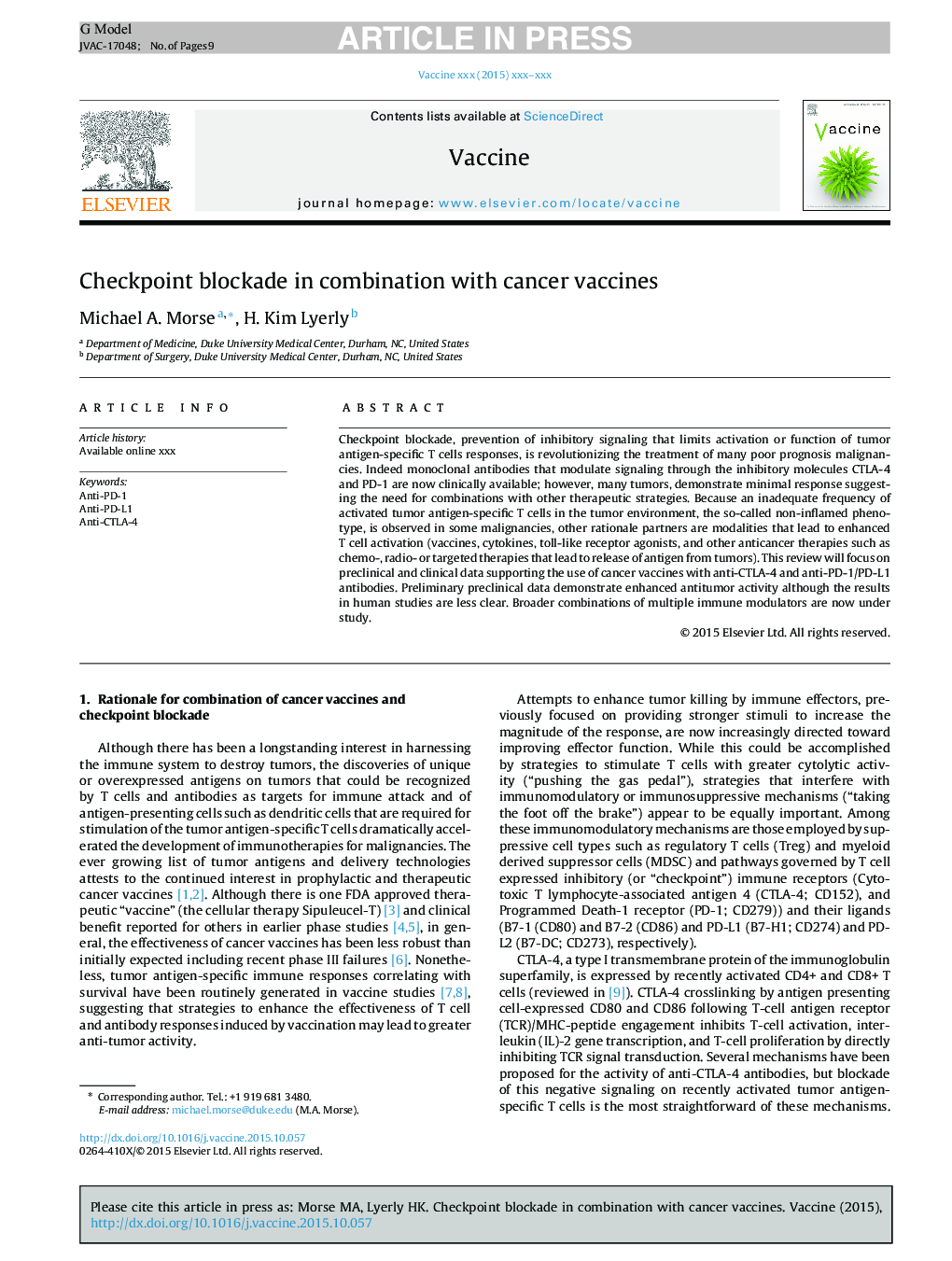| Article ID | Journal | Published Year | Pages | File Type |
|---|---|---|---|---|
| 10963279 | Vaccine | 2015 | 9 Pages |
Abstract
Checkpoint blockade, prevention of inhibitory signaling that limits activation or function of tumor antigen-specific T cells responses, is revolutionizing the treatment of many poor prognosis malignancies. Indeed monoclonal antibodies that modulate signaling through the inhibitory molecules CTLA-4 and PD-1 are now clinically available; however, many tumors, demonstrate minimal response suggesting the need for combinations with other therapeutic strategies. Because an inadequate frequency of activated tumor antigen-specific T cells in the tumor environment, the so-called non-inflamed phenotype, is observed in some malignancies, other rationale partners are modalities that lead to enhanced T cell activation (vaccines, cytokines, toll-like receptor agonists, and other anticancer therapies such as chemo-, radio- or targeted therapies that lead to release of antigen from tumors). This review will focus on preclinical and clinical data supporting the use of cancer vaccines with anti-CTLA-4 and anti-PD-1/PD-L1 antibodies. Preliminary preclinical data demonstrate enhanced antitumor activity although the results in human studies are less clear. Broader combinations of multiple immune modulators are now under study.
Keywords
Related Topics
Life Sciences
Immunology and Microbiology
Immunology
Authors
Michael A. Morse, H. Kim Lyerly,
